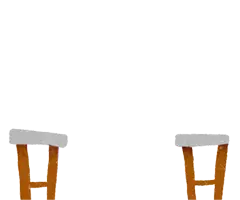Part 2Powers and duties of local authorities
Buildings
42Local authority may require repairs and issue closing order
This section shall apply in any case where the medical officer of health, or the engineer of any local authority, or any other officer of a local authority duly authorised in that behalf, gives to the local authority a certificate to the effect—
-
- that any dwellinghouse within that district is, by reason of its situation or
insanitary condition, likely to cause injury to the health of any persons therein, or otherwise unfit for human habitation; or -
-
- that any dwellinghouse within that district does not comply with any regulations made under section 120C.
In any case to which this section applies, the local authority may, and shall if so required by the Director-General, cause to be served on the owner of the premises, or his agent, a notice in writing requiring the owner to carry out any repairs, alterations, or works specified in the notice (hereinafter referred to as a repair notice) within a time to be specified in the notice, and stating that if the notice is not complied with an offence is committed and a closing order may be issued under this section. If the owner is not the occupier of the premises a copy of the notice shall be served on the occupier (if any). A copy of the notice shall also be served on every person having a registered interest in the land under any mortgage or other encumbrance.
Where any such notice is not complied with to the satisfaction of the local authority, the local authority may, and shall if so required by the Director-General, issue an order (hereinafter referred to as a closing order) prohibiting the use of the premises for human habitation or occupation from a time to be specified in the order (being not less than 21 days after the issue of the order) until such repairs, alterations, or works as may be specified in the closing order have been carried out to the satisfaction of the local authority. The closing order shall be served forthwith on the occupier of the premises; and if the occupier is not the owner a copy shall be served on the owner or his agent. If the premises are unoccupied, the closing order shall be served on the owner or his agent. A copy of the closing order shall also be served on every person having a registered interest in the land under any mortgage or other encumbrance.
Notwithstanding anything in subsection (2) or subsection (3), the Director-General may in any case to which this section applies, if in his opinion a closing order should be issued immediately, direct the local authority to issue a closing order under the said subsection (3) without first giving notice under the said subsection (2); and thereupon the local authority shall issue and serve a closing order accordingly.
If the owner of any premises to which this section applies cannot be found, or is out of New Zealand and has no known agent in New Zealand, the occupier (if any) of the premises shall be deemed for the purposes of this section to be the agent of the owner.
Without limiting anything in subsections (3) and (4), every owner commits an offence against this Act who fails without reasonable excuse to comply with a repair notice served on the owner under subsection (2).
Notes
- Section 42(1)(a): repealed, on , by section 92(1) of the Building Act 1991 (1991 No 150).
- Section 42(1)(b): amended, on , by section 92(1) of the Building Act 1991 (1991 No 150).
- Section 42(1)(c): repealed, on , by section 92(1) of the Building Act 1991 (1991 No 150).
- Section 42(1)(d): repealed, on , by section 92(1) of the Building Act 1991 (1991 No 150).
- Section 42(1)(e): inserted, on , by section 3(1) of the Health Amendment Act 1979 (1979 No 64).
- Section 42(2): amended, on , by section 7(2) of the Health Amendment Act 1987 (1987 No 10).
- Section 42(2): amended, on , by section 12(1) of the Health Amendment Act 1987 (1987 No 10).
- Section 42(3): amended, on , by section 7(2) of the Health Amendment Act 1987 (1987 No 10).
- Section 42(6): inserted, on , by section 12(2) of the Health Amendment Act 1987 (1987 No 10).


